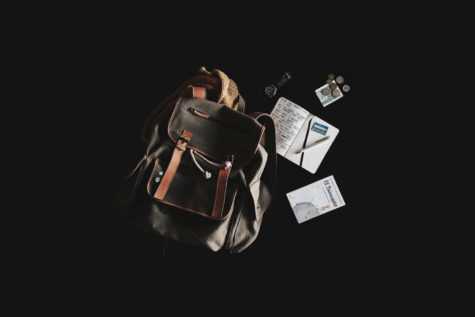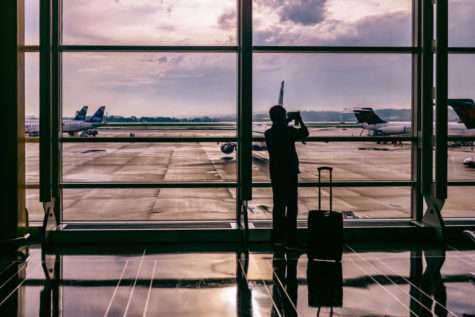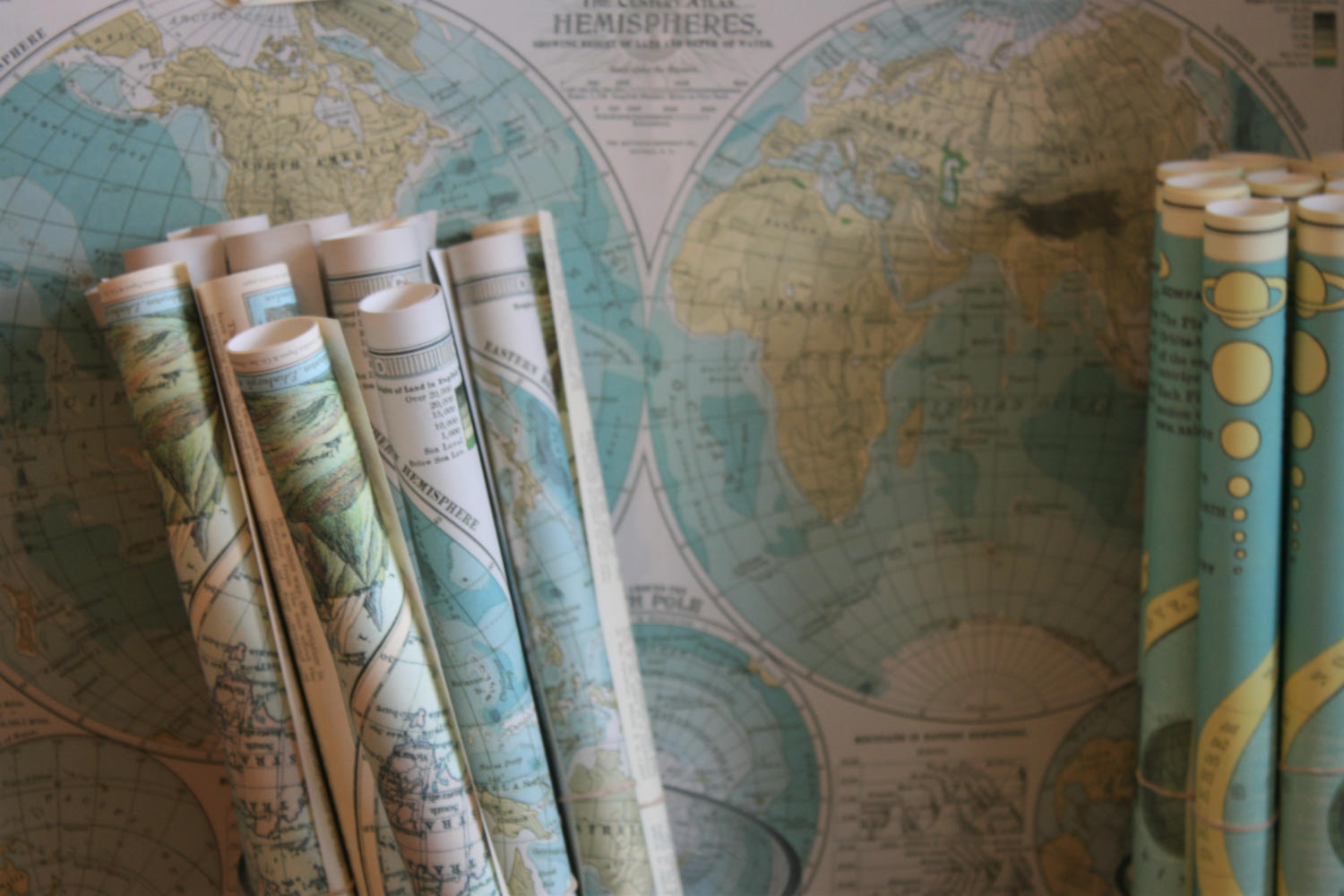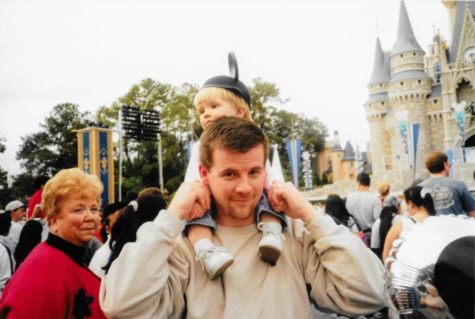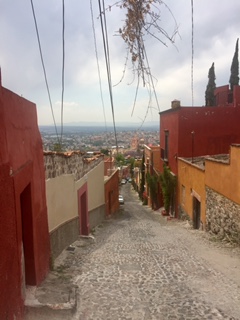Top Tips to Travel
Imagine watching a family run across the airport terminal, hair whipping across their faces, dragging their bags, and heavily breathing. Did they wake up late? Did they lose their luggage? Did they forget which terminal they needed? The panic this family is facing is something in which no one should ever have to deal. The hardest part about traveling is making sure everything flows smoothly and is stress-free. The fear of travel is: ¨An irrational and unreasonable fear of travel is called agoraphobia¨ (¨Medical Definition of Fear¨). The problem with this fear is although it is not common, when people have it, the fear is like a paralyzation. Many people do not have this drastic of a fear, but the thought of travel often makes people nervous. Things can go wrong in a foreign country or close to home and sometimes it is not possible to plan for all problems one may face on a trip. Although many travel blogs are filled with tricks, these tips are the most crucial and recommended out of a copious amount of blogs written by lifelong travelers. Three tips to ensure safe and fun travel include: keep an open mind, talk with natives and plan in advance.
Tip 1, keep an open mind. While on vacation, opportunities arise to partake in crazy and disparate experiences. Being on vacation is like eating at a buffet, and whoever just ate salad at a buffet? Say yes when someone asks to go skydiving, bull riding, hiking, or to try new, endemic cuisine. Do not judge the lifestyles of others because in the United States, a bad habit such as smoking is a social norm in Europe. Out of 7,500,789,888 people in the world, no two people are the same, one must listen to opinions that are different and embrace different possibilities, opportunities, people, suggestions, and interests (“Current World Population”). It is important to take advantage of being in a new location and learn from the unique experiences and people. Do not be afraid to ask questions: learning different viewpoints might be conflicting, but sometimes it is surprising what can be learned (Karsten). Also, remember to learn some simple language phrases: “Hello,” “How are you,” and “Thank you” go a long way no matter what part of the world. Locals do not expect tourists to be experts, but learning a few basic phrases in the common language will go a long way to earn their reverence and potentially help with planning the trip. It will bring a smile to their face that effort was given and it might even lead to friendships and invitations out to events (Kepnes). Meeting locals will help the idea of asking a other locals for help or suggestions less awkward or scary.
Tip 2, ask a native if any questions arise during travel. If this is a first-time trip to the area, check websites for information such as couchsurf: it is possible to get a free place to stay and get to know locals with a hospitality network (Kepnes). Make it a point to avoid other travelers from time to time and start conversations with local people. Basic English is spoken widely all over the world, so it is easier to communicate than most people realize, especially when combined with hand gestures and body language or learning the few. Learn from the locals, people enrich travels more than sights do (¨How to Travel¨). This will help create making the most out of the trip by seeing a mixture of popular tourist destinations as well as hidden gems of which the locals know. Sam Shank, the creator of TravelPost, a hotel review site, logs up to 100,000 miles, a year as chief executive officer of HotelTonight. As a tool when he arrives, in a new location, he used to use TripAdvisor but all of them are written by travellers, so even the highly recommended places are inherently tourist traps. He learned from this mistake and now takes advice from locals to find the unexpected beauties of each new city (¨Tips from a Travel Junkie¨). It is important to learn from the locals as they are aware of the areas because they spend their lives there. While also learning from the locals, it is still smart to use apps such as HotelTonight to plan hotel reservations in advance.
Tip 3, plan in advance but also understand that great things happen by going with the flow. Plan hotels and other accommodation as much as possible, but remember that sometimes traveling requires flexibility. Do not skip going to that random city with new friends just because the itinerary says something different. Go with the flow and be open to new things — that is when the magic happens (Kepnes). Also, try to pre-plan outfits. When looking back on pictures it is nice to see coherent outfits. Sometimes it is necessary to only pack one bag and it is crucial to have enough basics (underwear and socks) but also staple pieces that can be worn in different outfits. A week before the trip, make a list of items to pack and what sights are the most important to see (Woodrow). Certain things such as common tourist vernacular can be learned before trips. Many people think the only options for room and board on vacations are hotels or condos. But, the options are endless, and include places such as hostels, where people can sleep in dormitory-style housing. The cost is reasonable, and it is a great way to meet and learn from other travelers or natives. Also, remember to go on a trip with a mission in mind. An article written in National Geographic discusses how deciding where to start can be overwhelming, but instead of fretting over how many sights to fit into a trip itinerary, pick a couple must-see destinations (¨9 Tips to Remember When¨). By doing this, the missed must-see destinations or adventures will be no more, and the trip will be chocked full of fun times and once in a lifetime occurrences.
The hardest part about traveling is making sure everything flows smoothly and is stress-free. Three tips to ensure a safe and fun travel are: keep an open mind, talk with natives and plan in advance. Keep an open mind while talking with all locals or trying new experiences. Talk with the natives, they will have suggestions on what are the best sights to see that might not have been listed on a travel planner website. Lastly, plan in advance because nothing is worse than forgetting a toothbrush or phone charger. By following these three tips, running through the airport dazed and confused will be a farce.
“9 Tips to Remember When Traveling to US National Parks.” National Geographic, 27 Apr. 2017, www.nationalgeographic.com/travel/travel-interests/tips-and-advice/9-tips-to-remember–traveling-national-parks/. Accessed 27 Apr. 2017.
“Current World Population.” World Population Clock: 7.5 Billion People (2017) – Worldometers, www.worldometers.info/world-population/. Accessed 28 Apr. 2017.
“How to Travel like a Pro.” The Telegraph, Telegraph Media Group, 30 Nov. 2016, www.telegraph.co.uk/travel/travel-plus/essential-travel-tips/. Accessed 28 Apr. 2017.
Karsten, Matthew. “Best Travel Tips After 4 Years Traveling.” Expert Vagabond, Expert Vagabond, 23 Jan. 2017, expertvagabond.com/best-travel-tips/. Accessed 27 Apr. 2017.
Kepnes, Matt. “27 Travel Tips to Help You Become a Master Traveler.” The Huffington Post, 17 Mar. 2014, www.huffingtonpost.com/matt-kepnes/27-travel-tips_b_4980147.html. Accessed 27 Apr. 2017.
“Medical Definition of Fear of Travel.” MedicineNet, www.medicinenet.com/script/main/art.asp?articlekey=9961. Accessed 27 Apr. 2017.
“Tips from a Travel Junkie: How to Turn Any Hotel Room into a Sleeping Cave, and Other Travel Tips.” National Post, news.nationalpost.com/life/travel/tips-from-a-travel-junkie-how-to-turn-any-hotel-room-into-a-sleeping-cave-and-other-travel-tips. Accessed 27 Apr. 2017.
Woodrow, Christy. “My 25 Best Travel Tips After 10 Years of Traveling the World.” Ordinary Traveler, 17 Mar. 2017, ordinarytraveler.com/best-travel-tips. Accessed 27 Apr. 2017.
